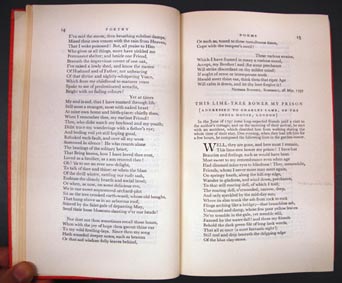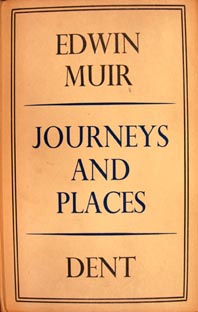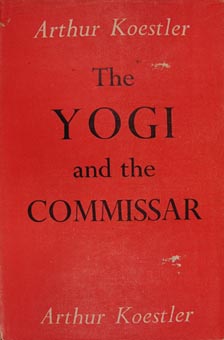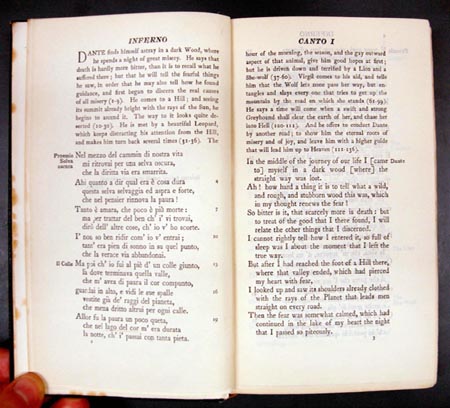Heading Home
Samuel Taylor Coleridge (1772-1834), one of the founders of the Romantic Movement in England, was famous for the poem The Rime of the Ancient Mariner. Coleridge was an incessant reader and writer of marginalia, and he recorded titles eagerly devoured when young: Belisarius, Robinson Crusoe, Philip Quarll and the Arabian Nights' Entertainments. Brasch was obviously caught up in the world of the Romantics. On 3 May 1943, after reading Shelley, he turned to Coleridge, reading this Nonesuch edition of Coleridge's poetry and prose and following it up with E. K. Chambers's Samuel Taylor Coleridge: A Biographical Study (1938).
Samuel Taylor Coleridge, Select Poetry & Prose. London: Nonesuch Press, [1933]. Brasch PR4472.FV35
Edwin Muir (1887-1959) once wrote:'No wonder I am obsessed with Time.' Place also figured in Muir's poetic world, marked by the pivotal move from the Orkneys (his idyllic Eden of birth) to Glasgow in 1901. Brasch re-read Muir's Journeys and Places on 8 November 1943, and wrote: 'More than any other living poet, possibly excepting Auden, E. M. points to man's place in the world, in life; & that is the great question that haunts me.' In February 1962, just before bed and by the light of a kerosene lamp, Brasch read Muir's work again.
Edwin Muir, Journeys and Places. London: Dent, 1937. Brasch PR6025.U6 J6 1937
Hugh MacDiarmid was the pen name of Christopher Murray Grieve (1892-1978), the Scottish poet, who was a founder of the National Party of Scotland. MacDiarmid's ambition was to live up to Rilke's dictum that 'the poet must know everything' and to write a poetry that contained all knowledge. When Brasch first read Stony Limits (1935) and First Hymn to Lenin (1931) in August 1945, he praised MacDiarmid: 'To come across a fine poet for the first time is like discovering a new star.' Brasch also owned MacDiarmid's Collected Poems (1962) and this Castle Wynd edition, and noted the stanza variations to Stony Limits.
In December 1945, while on board the steamer home to New Zealand, Brasch chatted with fellow passengers, sunbathed, played deck games, minded a few children, and read. One book carried with him was Arthur Koestler's The Yogi and the Commissar (1945), a work dealing with Stalinism and Communism. This was not Brasch's first introduction to the Hungarian-born writer. In August 1944, while travelling by train from Paddington station, he read Arrival & Departure (1943),'which seemed to increase the nightmarishness of the journey & what we were leaving.'
Dante's Divina Commedia ranks as one of the greatest works of world literature. On 9 March 1946, Brasch dipped into the Divine Comedy again:'Reading in Amberley a week ago the early cantos of the Inferno, suddenly & for the first time I felt that I understood what inspired the Commedia & what it is all about. It is a vision of the terrible reality of good & evil &of the inescapable consequences of human action, which is the exercise of free will.' Of course Brasch was not always reading, as the tipped-in note reveals:'Lunching Art Gallery 1 today come if you can…'. This is one of Brasch's portable Dent editions.
Dante Alighieri, Inferno. London: Dent, 1900. Brasch PQ4305.A1 1900






